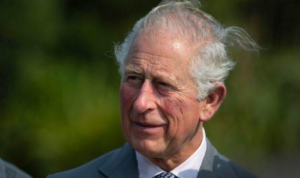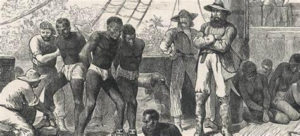
The British Monarchy and the Slave Trade

INTRODUCTION:
The problem of historical injustices has been brought back into the public glare as a result of Buckingham Palace’s statement that it is collaborating with an independent study looking at the British monarchy’s involvement in the slave trade in the 17th and 18th centuries.
The research, which has the backing of King Charles, could reveal hitherto unrecognised facts concerning the depth of the British monarchy’s participation in the transatlantic slave trade and its enduring effects on contemporary society.
Important considerations concerning responsibility, restitution, and the boundaries of legal action in addressing systematic racism and past injustices are raised by this inquiry.
This essay will examine the ethical and legal ramifications of looking into the Royal Family’s involvement with slavery and their role in fostering accountability and rapprochement in contemporary society.

During the 17th and 18th centuries, the British monarchy’s participation in the slave trade was a crucial component of the British Empire’s growth. The monarchy was crucial in allowing the slave trade, which was a lucrative industry that brought immense money to British merchants.
The monarchy assisted in funding the slave trade, gave charters to businesses engaged in the slave trade, and protected British traffickers and their ships.
The monarchs were compensated with a portion of the proceeds from the slave trade. The British monarchs had a complicated relationship with the slave trade, at times supporting and at other times condemning it.
THE SLAVE TRADE AND BRITISH ECONOMIC GROWTH
The slave trade played a crucial role in the development of the British economy in the 17th and 18th centuries. The trade was a huge source of riches that opened up new markets and products for British merchants.
According to historian Eric Williams, “The profits from the slave trade and West Indian plantations laid the economic foundations of England’s industrial revolution.” (Williams, 1944) The basic resources used to power British industrialization, including cotton, sugar, and tobacco, came from the slave trade. The British monarchy’s participation in the slave trade was directly related to this economic expansion.

ROYAL CHARTERS AND THE SLAVE TRADE
Slave-trading businesses received charters from the British monarchs, which gave them the sole authority to traffic slaves in particular areas. Charles II awarded a charter to the Royal African Company in 1672, making it the most well-known of these businesses.
For more than two decades, the business controlled the British slave trade. According to the company’s charter, it was permitted to build forts and villages along the coast as well as traffic slaves along Africa’s west coast. Additionally, the firm had the authority to wage war against any African kingdoms that refused to engage in trade.
William III extended the Royal African Company’s charter in 1689, and the company traded slaves up until 1731. Due to growing competition from other slave-trading businesses and shifting public opinion regarding the slave trade, the company was shut down.

Giving charters to slave-trading businesses demonstrates the British monarchy’s direct involvement in the slave trade. These charters granted businesses the sole permission to conduct business in particular areas, providing them with a competitive edge over other dealers. Companies were able to make tremendous profits thanks to their unique access to slave markets.
MONARCHY AND SLAVE TRADE FINANCING
The British monarchy supported the slave trade financially as well. It accomplished this, among other things, by selling government bonds. To fund the operations of the Royal African Company, the government issued bonds in 1695. These bonds, which the government insured, were offered for sale to individual investors. The government issued the bonds as a way to fund the business and also offered private investors a guaranteed rate of return.
The sale of government bonds to fund the slave trade demonstrates the government’s direct financial involvement in the industry. Additionally demonstrating its readiness to financially assist the slave trade is the government’s guarantee of the bonds.
ROYAL NAVY AND THE SLAVE TRADE
The British monarchy’s involvement in the slave trade extended beyond simply issuing licences and providing funding. Through the Royal Navy, the monarchy also offered protection to British merchants and their ships. Protecting British shipping interests, especially those implicated in the slave traffic, fell under the purview of the Royal Navy. While sailing across the Atlantic with slaves from Africa, the navy guarded British ships against piracy and other dangers.
There was a considerable role for the Royal Navy in the slave trade; according to some estimates, up to one-third of the Royal Navy’s resources were devoted to defending British slave dealers. There was some debate surrounding the Navy’s participation in the slave trade, though. Instances of mutiny and sabotage by sailors who were against shipping enslaved Africans occurred because some members of the navy opposed the trade.
OPPOSITION TO THE SLAVE TRADE
Even though the British monarchy actively participated in the slave trade, there were those monarchists who condemned it. Queen Charlotte, the wife of King George III, was one such person. Queen Charlotte was an anti-slavery activist who fought to abolish the slave trade. In a letter to her friend Lady Collingwood, she wrote, “I abhor the practice of slavery and hope the time will come when it will be abolished” (quoted in Black, 2020).
The fact that Queen Charlotte opposed the slave trade was noteworthy since it showed that not all members of the royalty shared her views. Her support for abolition aided in energising resistance to the trade as well as increasing awareness of its horrors.
CONCLUSION: THE LEGACY OF THE BRITISH MONARCHY AND THE SLAVE TRADE
The slave trade and the British monarchy had a complicated history together during the 17th and 18th centuries. On the one hand, the monarchy’s provision of charters, funding, and protection played a crucial part in fostering commerce. However, there were also others in the monarchy who disliked the trade and pushed for its outlawry.
Today, the effects of the British monarchy’s participation in the slave trade are still visible. Millions of Africans were sold into slavery, and this trade had a significant impact on their lives. Today’s racial and social concerns are still influenced by this trade’s history. Knowledge of the historical backdrop of these concerns and working toward a more just and equitable future require an understanding of the relationship between the British monarchy and the slave trade.








